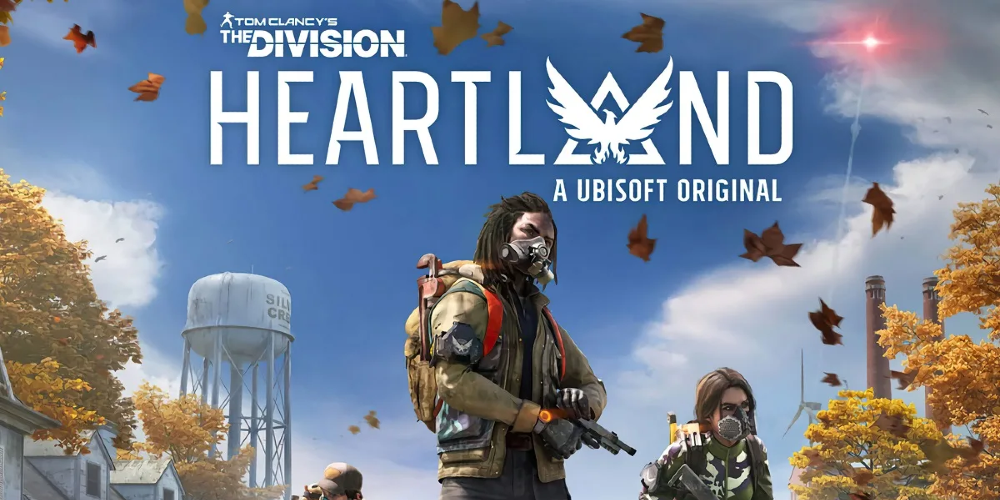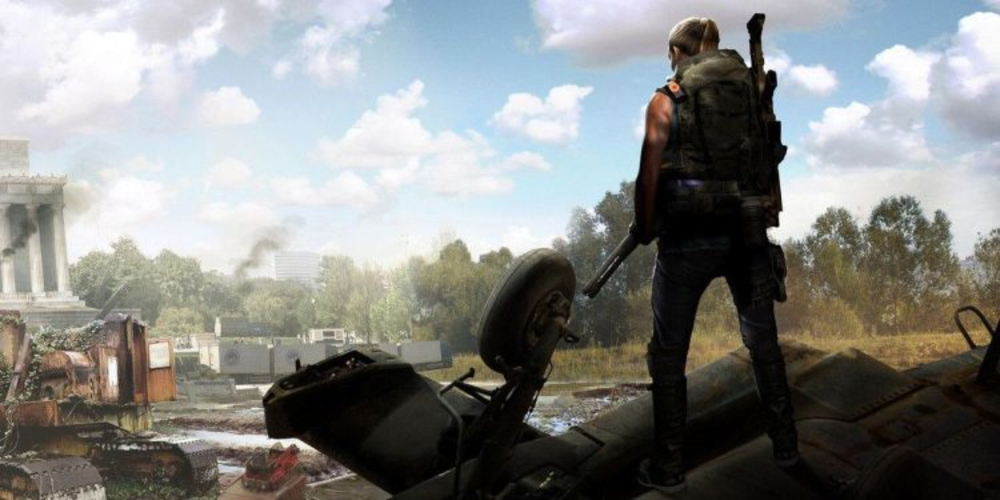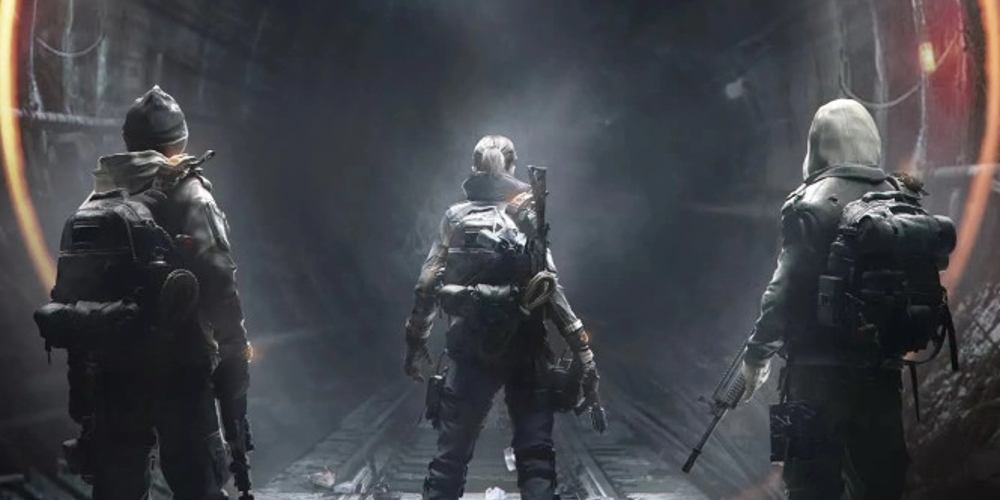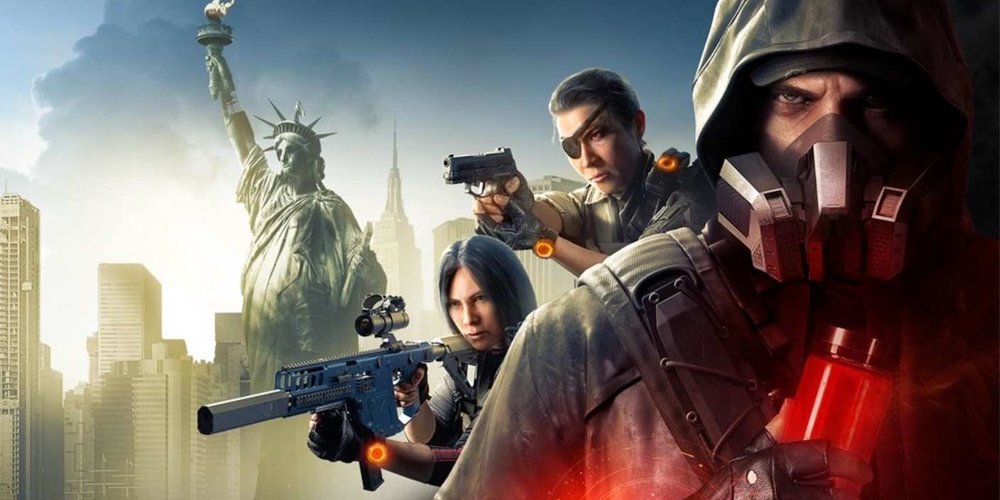What Went Wrong with The Division Heartland?
May-20-2024

If you’re a fan of Ubisoft – which is impressive, given everything that’s happened with the company in recent years – then it’s relatively good news. The company just revealed a new cinematic trailer for Assassin’s Creed Shadows, which is out November 15th for Xbox Series X/S, PS5 and PC. It also dropped a bunch of details, from how much you need to pay to get that one bonus quest in the Season Pass to new systems like seasons and seamless character switching.
During Q4 and full fiscal year financials, it touted the success of franchises like Assassin’s Creed and Rainbow Six Siege while promising updates for Shadows, Star Wars Outlaws, XDefiant and other titles at Ubisoft Forward on June 10th. Speaking of the free-to-play and totally-not-facing-troubled-development shooter, it’s out on May 21st. Life is seemingly looking up for the company, especially after so many underwhelming releases and controversies.
The Announcement that Went Unnoticed
However, one announcement almost went under the radar amid all the hype for the next Assassin’s Creed. Ubisoft confirmed that development on The Division Heartland had stopped to “redeploy resources to bigger opportunities such as XDefiant and Rainbow Six.” Your response is probably: The Division What? If you know about the game, then it’s more likely, “It was still in development?” and you would be justified for asking.
The Division Heartland was first announced in 2021 for Xbox Series X/S, Xbox One, PS4, PS5 and PC. It was touted as a free-to-play PvEvP-focused “survival-action shooter”, but instead of Washington D.C. or Manhattan, taking place in a more rural location called Silver Creek. The story concerned some “new breed of poison”, Rogue Division Agents and hostile survivors.
Gameplay Mechanics and Features

Players could collect materials and supplies, fighting off other players and AI enemies while completing objectives. The hook is that night could fall and add new enemies. Like an extraction shooter, it was paramount to extract or lose all of your gear upon death. Another challenge is the virus dynamically moving around the map, which necessitated filters for players to survive. Still, it could provide some nice loot if you ventured inside.
While multiple classes are nothing new for the franchise, Heartland sported six playable characters. Presumably, they would play a role in the “expanding” story, which never came to be, but alas. As you complete operations, new missions and areas on the map become available while your Base of Operations improves. Two types of Operations were available – Storm Operations, which saw 45 players competing in a PvEvP environment and Excursion Operations, which were PvE only.
Why Was It Cancelled?
It all seems simple enough, as does the reason for Ubisoft ultimately canning the project. After all, it cancelled the team-based title Project Q, the battle royale-focused Ghost Recon Frontline, Splinter Cell VR (and an alleged Splinter Cell battle royale title), and other such projects. Clearly, the tide was turning on the extraction shooter trend, and Ubisoft decided to cut its losses.
The call would likely have been easy since Heartland suffered multiple delays and developer Red Storm Entertainment was better off supporting XDefiant (cue the “Is it though?” reaction). The studio isn’t closing down like some other publishers, so all’s well that ends well, sort of?
The Bizarre Decision

It would seem so on the surface, but it’s still bizarre that Heartland would still be cancelled after all this time. Lest we forget, Ubisoft is the same publisher that kept Skull and Bones alive for years and years, through multiple reboots and departures at its Singapore studio, to release it to a middling critical and commercial response. Would The Division Heartland not have found more appeal, especially considering the popularity of IP?
According to those who participated in its playtests over the years, the answer is “No.”
Playtest Impressions
Insider Gaming’s Tom Henderson reported after the game’s cancellation that it “changed pretty significantly the last couple of years and had constant ongoing playtests, but it still didn’t resonate with players.” While more details will be forthcoming, streamer ConnorEatsPants offered his thoughts on a playtest from last year, which boiled down “what the fridge is this.” He then posted an in-game image of signs on a telephone poll stating, “All Way,” “One Way”, “No Cycling” and “Yield to Pedestrians” (on bicycles no less).
Other impressions from alleged playtesters on Reddit indicate multiple other problems, from PvP only being available at night time (which meant waiting for nearly an hour for the night to arrive) to mind-numbing tasks that involved collecting materials on a loop. You couldn’t access higher-level zones without doing these missions, and based on impressions, it seems that some of the best content, like Vulture Raids with multiple players teaming together.
One also criticized how the best elements of The Division were either dumbed down or outright absent (aside from the shooting). I’ve always believed that the roots of The Division Heartland lay in the first game’s Survival expansion, available in November 2016. Alone in the Dark Zone and freezing, collecting weapons and clothing to survive while battling against enemies and up to 23 other players – it felt genuinely nerve-wracking to play, especially when Hunters are on the loose.
The Roots and Inspirations

The main goal is to gather antivirals and extract them, but looting medicine to manage your own infection was also necessary. Considering Escape from Tarkov’s closed beta launched in June 2017, The Division’s Survival may have been the first proper extraction shooter.
Maybe the goal was to capitalize on this but expand it into something more, not unlike Outbreak from Rainbow Six Siege, which spun off into Rainbow Six Extraction. Perhaps Red Storm’s vision for the game was just at odds with what people liked about The Division and couldn’t fit into the extraction shooter model despite literally having a template in Survival. Maybe it couldn’t use the same premise as Survival and had to fit this whole “evolving story” into a brand new location. Perhaps it was greenlit to tide series fans over while Ubisoft Massive worked on projects like Avatar: Frontiers of Pandora and Star Wars Outlaws.
The Final Decision
Whatever the case, it wasn’t working, and instead of dropping millions more into a project that was too big to fail, like Skull and Bones, Ubisoft opted to cancel it while the cancelling was good. It’s unlikely to be missed since Massive announced The Division 3, with Julian Gerighty, co-director of the first two games, becoming an executive producer for the brand after Outlaws launches. The fact that Heartland was cancelled before he took the position seems to indicate that it’s more of an executive decision. Otherwise, those resources may have gone into the franchise’s future, especially given Red Storm’s experience with past titles.
For now, The Division Heartland can be considered another victim of Ubisoft attempting to chase trends, greenlighting too many projects and ultimately cutting back after several failures to focus on its top franchises. The series will continue to thrive, while Heartland is likely forgotten by everyone but the developers who worked on it. It’s a shame in many ways – there’s no comfort in having a years-long project cancelled out of the blue – but the sooner Red Storm can move on to bigger and better things (preferably after XDefiant), the better.







